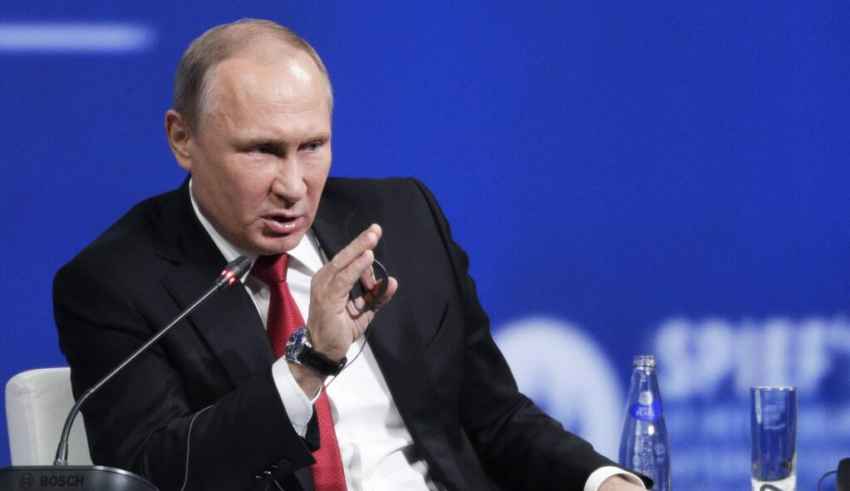
Over decades, Vladimir Putin has been holding tight – quasi strangling the presidency in Russia. It begs the question, what has this ‘president’ being doing for so long? The answer might sound simplistic but causing trouble would fit comfortably into a spontaneous answer. Where shall one begin, from backing Syrian President Bashar al-Assad during the Syrian Civil War; Salisbury’s poisonings in the UK or trying to silence in every possible way Russian Activist Alexei Navalny. Most certainly, this list does not do justice to the neo-Tsar, but it should aid to depict some corners of his enigmatic personality.
Perpetrations, hostile actions against democracy and freedom are an order of the day for President Putin. Why does the international community seem puzzled, that after nearly 8 years of conflict with the Ukraine, the Russian leader is attempting to erase the Ukrainian state from the world map. It is of empirical significance, to identify who is sitting on the other end of the table in this very moment. Vladimir Putin is like no other leader within the European family, and has never functioned as the rest of the supposedly peaceful cohort within the continent.
Inside Putin’s Mental Labyrinth
In a recent speech, the Russian autocrat unravelled his “arguments” in an attempt to justify the attack towards a sovereign state. Calling the Ukraine an “illegitimate country that exists on land that’s historically and rightfully Russian”, in his own view “Ukraine actually never had stable traditions of real statehood”. To the ears of most, this illogical thinking stems from complete and utter madness. Yet again, it should not come as a shock. During this tsarist speech, the world had the opportunity, once again, to witness Putin’s expansionist views loud and clear. Why should any leader, particularly one of this calibre, be allowed to question and step on the sovereignty of a neighbouring nation who has every right to leave in peaceful circumstances within its own borders.
Paranoid Putin, continued by describing the current government in the Ukraine “antagonistic” and “anti-Russian”. His choice of words acted as a blatant explanation of what he wishes to accomplish. Moscow is trying incredibly hard to install a puppet government, until this “special operation” is accomplished, the Ukraine will have a hard time. His syllogism has been completely affected by hysteria and has cut out some ‘minor’ details: Putin has no place in the Ukrainian government. In 2022, political leaders should not be allowed to forcefully lecture other sovereign states on how the nation and its government should be run. In his narrative, he stretched enough to threaten publicly Finland and Sweden stating that in the event of their willingness to join the NATO Alliance, this would trigger “serious military-political consequences” from Moscow. The two Nordic states brushed off the Russian warning, but will brushing off suffice? Arguably such provocative statements, reveal catastrophic intentions which must be stopped before words become actions. Putin has well informed the international community of his unfamiliarity with democratic electoral systems, arguably the Russian Federation hasn’t seen one in action for some time. Understanding the current crisis, highly depends on taking these nationalist ideas seriously.
Although, the Russian dictator’s speech was incredibly painful to watch for many around the globe, it certainly was an incredibly useful insight. In the opinion of many experts, this speech acted as an endoscopy into his thinking. The catatonic leader, undisclosed his entire agenda: reversing the collapse of the Soviet Union, an event in history that symbolised a major geopolitical disaster for some at the time; a much-needed geopolitical liberation today. Reuniting the lands of the former Soviet Union must be his much-desired ambition.
Final note
Views of this sort should not be translated as personal attack on Putin, but rather a public condemnation of this phenomenon: Deeply rooted, violent, extremist, and groundless nationalism. Therefore, what the international community is called to face, is certainly the war against the Ukraine, but not exclusively. We owe it to ourselves and the generations to come, to stand robustly, defending human rights, freedom and justice using the international instruments at hand. Current events have left people with bitter doubts: Is this the world we created?
The West had to be prepared, it ought to know that this situation would eventually escalate. Putin is not a newcomer; he has been rusting onto the presidential chair for some time now and had never hidden his severe allergy to democracy.
There is no need to stand onto the political pinning board, whether you identify with the right, left wing, or center it does not matter. Neither are we facing a confrontation between the Western and the Eastern bloc. Today is a bloodshed, a threat towards humanity and everything it stands for. No one, neither Putin, nor the silence of a power such as China, nor European mistakes can stain human history with the defeat of the principles of human life.
The time has come for Putin’s troubled relationship with democracy to come to an end.
Sources:
- https://www.bbc.com/news/uk-58635137
- https://news.un.org/en/story/2021/03/1086012
- https://www.newyorker.com/news/dispatch/how-putin-wants-russians-to-see-the-war-in-ukraine
- https://www.vox.com/policy-and-politics/2022/2/23/22945781/russia-ukraine-putin-speech-transcript-february-22
- https://abcnews.go.com/International/wireStory/finland-sweden-brush-off-moscows-warning-joining-nato-83126927
By The European Institute for International Law and International Relations.















